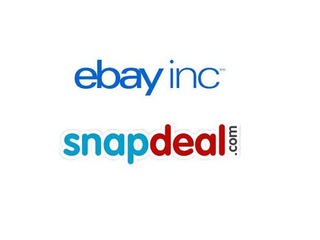Global AI in healthcare market expected to rise to $164B by 2030
The market size for 2023 was $10.31 billion
Read more...
Remember a time when you thought buying things online was kind of a crazy idea? It's honestly been so long that I barely can. Around 15 years ago there was a boom in the space, with companies like Amazon and eBay making huge dents.
Now there seems to be another wave coming, as funding for e-commerce startups is beginning to explode.
There was a total of $11.2 billion put into the e-commerce sector in 2014, an increase of 133% from the $4.8 billion invested in 2013, according to data out from CB Insights on Tuesday. Interestingly, the number of deals actually fell slightly, with 481 in 2014, down from 490 in 2013.
This is the highest total funding for the e-commerce space in at least five years, which is as far back as CB Insight data tracks.
Overall, in the past five years, there has been a total of $30.3 billion dollars have been invested in over 2,013 deals in this space. Back in 2010, there was only $1.6 billion being invested in 166 deals, so obviously things have grown a lot since then.
In the first quarter of 2015 alone, there has already been $3.3 billion invested in 133 deals. If those numbers remain steady, that would mean that this year would see $13.2 billion invested and 532 deals. Very impressive numbers.
That is actually the third quarter in the past five years to reach $3.3 billion. The other times were the second quarter of 2011 because of a $1.5 billion funding from Walmart, and other investors, into China-based company Jingdong; and the fourth quarter of last year, when Flipkart raised $1 billion in Series G funding.
When broken down by stage, early stage companies, which means seed and Series A, are still receiving the majority of deals, between 53% and 66%, over the last five years. Late stage companies, meaning D and above, meanwhile, only got between 5% to 13% of deals in that time frame.
When it comes to dollar share, the data shows that the disparity is now quite as large, though. Early-stage funding ranged from an 8% to a 20% share of dollars, while mid-stage, meaning Series B and Series C, investments ranged between a 29% to 38%, and late-stage ranged from a 25% to 47% share of total funding.
This past quarter showed a shift of dollars away from late-stage and to mid-stage deals, with Series B shrinking to 23% and seed funding growing to 21%.
Ok, now that we have all of that out of the way, we can get to the good part: who are the companies that are making up this new e-commerce wave? There are 10 of them, and together they have raised over $10 billion since 2010.
The biggest one is Indian company Flipkart, which has raised roughly $3 billion overall. Last year alone it picked up a $210 million investment led by DST Global in May and then the aforementioned $1 billion round, led by Tiger Global and Naspers, in July. It raised another $700 million to close out the year.
Chinese company Dianping has raised $1 billion, including $850 million in March.
Number three on the list is Delivery Hero, which has taken three investmens this year. Two of them were from Rocket Internet, which, in February, took a 30% stake in Delivery Hero, for the price of €496 million, or $562.4 million, and that was then followed by it taking another 9% of the company for €52 million in March.
Earlier this month Delivery Hero raised another $110 million from undisclosed investors.
Next on the list is another Indian company, Snapdeal, which raised at least $860 million in four rounds in 2014.
The first investment in the company was in a round led by eBay in February, in which it invested $133.7 million. The round also included Kalaari Capital, Nexus Venture Partners, Bessemer Venture Partners, Intel Capital and Saama Capital. That was then followed by another $100 million from Temasek, BlackRock, Myriad, Premji Invest and Tybourne in May, and then an undisclosed personal investmentfrom Ratan Tata in August. The company then added another $627 million from Softbank in October.
Rounding out the top five is LivingSocial, which has raised nearly $1 billion, most notably a $400 million round at a $3 billion valuation in 2011.
It should be noted that nine out of the 10 most well-funded companies are international, with four of them coming from China and the two from India.
(Image source: bubbleup.net)
The market size for 2023 was $10.31 billion
Read more...At Culture, Religion & Tech, take II in Miami on October 29, 2024
Read more...The company will use the funding to broaden the scope of its AI, including new administrative tasks
Read more...Startup/Business
Joined Vator on

CB Insights is a private company database that provides real-time information on the world's most promising companies, their investors, their acquirers and the industries they compete in to help you invest smarter.
Since launching in 2010, CB Insights has become the most trusted and loved source for private company information. Hundreds of clients (including New Enterprise Associates, Cisco, Salesforce, Castrol and Comcast) rely on CB Insights to help them answer the tough questions.
If you like data, startups or quality analysis, join the other 110,000+ subscribers of our free newsletter.
We received a grant from the National Science Foundation in 2010 and Series A investment from RSTP in 2015.
We're hiring! Want to join a fast-moving, fun-loving group of data lovers? Head over to our jobs page.







